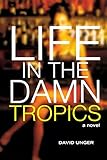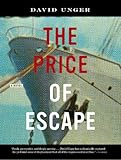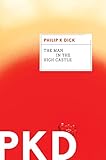
On May 10, 2009, Rodrigo Rosenberg, a hotshot Guatemalan lawyer, was murdered a few blocks away from his house. Days later a video declaration surfaced in which Rodrigo openly accused the then Guatemalan president, Álvaro Colom, of his death. “If you’re watching this video it is because I’ve been murdered,” he said in the recording. Rodrigo also accused Colom of murdering Khalil Musa, one of his clients, and his daughter Marjorie weeks earlier. As the investigation wore on, it was revealed that Rodrigo and Marjorie had been involved in an affair. After a thorough inquiry, the United Nations Commission against Impunity in Guatemala (CICIG) declared that Rodrigo — possibly depressed by the death of Marjorie, who he called the love of his life — had orchestrated his own murder.
This sensational case is the inspiration for The Mastermind (Akashik Books), the latest work by Guatemalan author David Unger. This new thriller presents the acute current state of corruption and political turmoil of Guatemala, as well as the intense, dangerous relationship between Guillermo and Maryam — Rodrigo and Marjorie’s literary counterparts.

 Despite writing exclusively in English, Unger was awarded Guatemala’s Miguel Ángel Asturias National Prize in Literature 2014. He is the author of the novels The Price of Escape and Life in the Damn Tropics, and he has translated 14 books from Spanish into English. We caught up with David for a quick chat about his new book near his office at CUNY, where he teaches literary translation.
Despite writing exclusively in English, Unger was awarded Guatemala’s Miguel Ángel Asturias National Prize in Literature 2014. He is the author of the novels The Price of Escape and Life in the Damn Tropics, and he has translated 14 books from Spanish into English. We caught up with David for a quick chat about his new book near his office at CUNY, where he teaches literary translation.
José García: What interested you in this case?
David Unger: A lot of people talked about this story as an example where reality surpasses fiction; as a writer that really bugged me. I took it as a challenge. But also, because I hadn’t written anything that dealt with current events in Guatemala. I had written about the Armed Conflict or the United Fruit Company’s involvement with the country, but not of what has happened recently, and I wanted to explore that.
JA: What made you want to fictionalize the case? You could’ve done a journalistic piece, or remain closer to the facts, but you didn’t.
DU: In my last novel, The Price of Escape, I did a lot of research about the relationship between former president Jorge Ubico and the United Fruit Company. I wanted to understand the backstory of what happened then.
In this case, I chose not to, primarily because I am familiar with some of Guatemala’s current history. Rodrigo’s case is very recent. I thought I could write a novel without the heavy research I put into the previous book. Also, I was mostly interested in the relationship between Rodrigo and Marjorie.
JA: Something that was mostly overlooked by the media.
DU: We barely know anything about it. We don’t know what her relationship with her husband was. What we do know is that there was a lot of passion between Rodrigo and Marjorie. I don’t think he was arrogant enough to think his own death could change the country. But I think he was a very passionate guy who might have felt that the best part of his life was over and that he wasn’t going to find another woman like Marjorie. For me, that was the story right there.
JA: You have mentioned that you wanted to remain distant from the facts, to stay away from articles and documentaries. But, did you do any research at all while writing your novel?

 DU: No. Zero. I didn’t want the fact to affect my fiction. There was an article published in The New Yorker about the case I read a couple of times while writing, but that was just to check some minor facts about the context. I wanted to stay as far away from the facts as possible. I wanted to write the opposite of Truman Capote’s In Cold Blood.
DU: No. Zero. I didn’t want the fact to affect my fiction. There was an article published in The New Yorker about the case I read a couple of times while writing, but that was just to check some minor facts about the context. I wanted to stay as far away from the facts as possible. I wanted to write the opposite of Truman Capote’s In Cold Blood.
JA: Can you mention a few other Guatemalan or Central American writers that might help the American audience understand the region?
DU: First Miguel Angel Asturias’s Señor Presidente (The President). Then maybe the novels of Rodrigo Rey Rosa, Javier Mosquera, Victor Montejo, the works of Horacio Castellanos Moya, and Roque Dalton, he’s a poet that needs to be looked into. Then there’s Jacinta Escudos or Arturo Arias too, they have been translated into English. Also, there’s an anthology entitled And We Sold the Rain that included Central American short stories of the late-’80s and early-90s that they might find interesting.

 JA: What is the role or responsibility of the fiction writer while dealing with historical events? I’m thinking of The Man in the High Castle or The Yiddish Policeman’s Union.
JA: What is the role or responsibility of the fiction writer while dealing with historical events? I’m thinking of The Man in the High Castle or The Yiddish Policeman’s Union.
DU: Primarily I think the writer has to write whatever he or she wants to write about. The writer’s responsibility is to creativity. However, I do think there are some limitations. One cannot write a novel, for example, about José Efraín Ríos Montt (former Guatemalan president officially charged with genocide and crimes against humanity) and mess around with the facts in order to clean his reputation or attend a personal interest. One has a historical responsibility while addressing atrocities.









